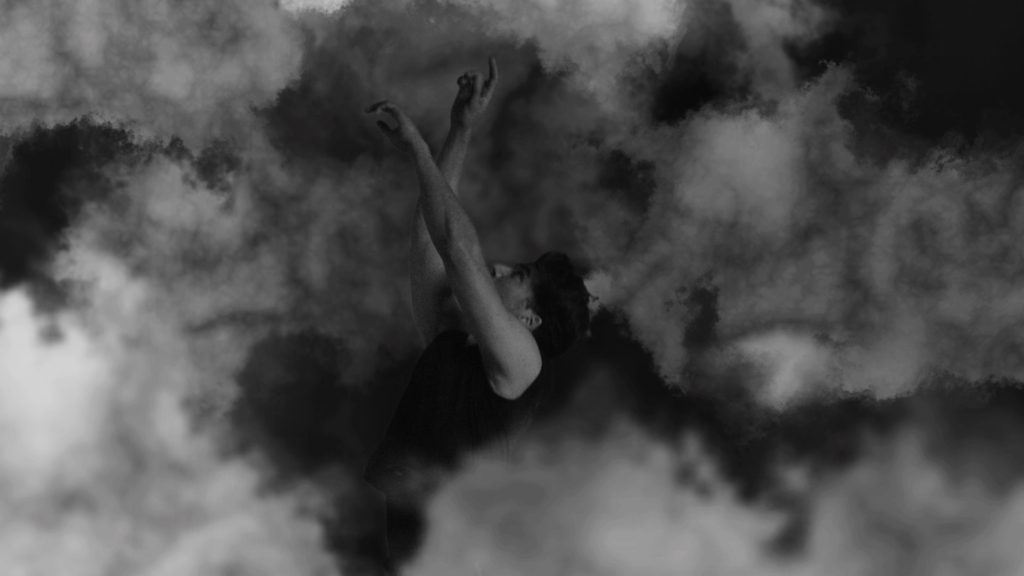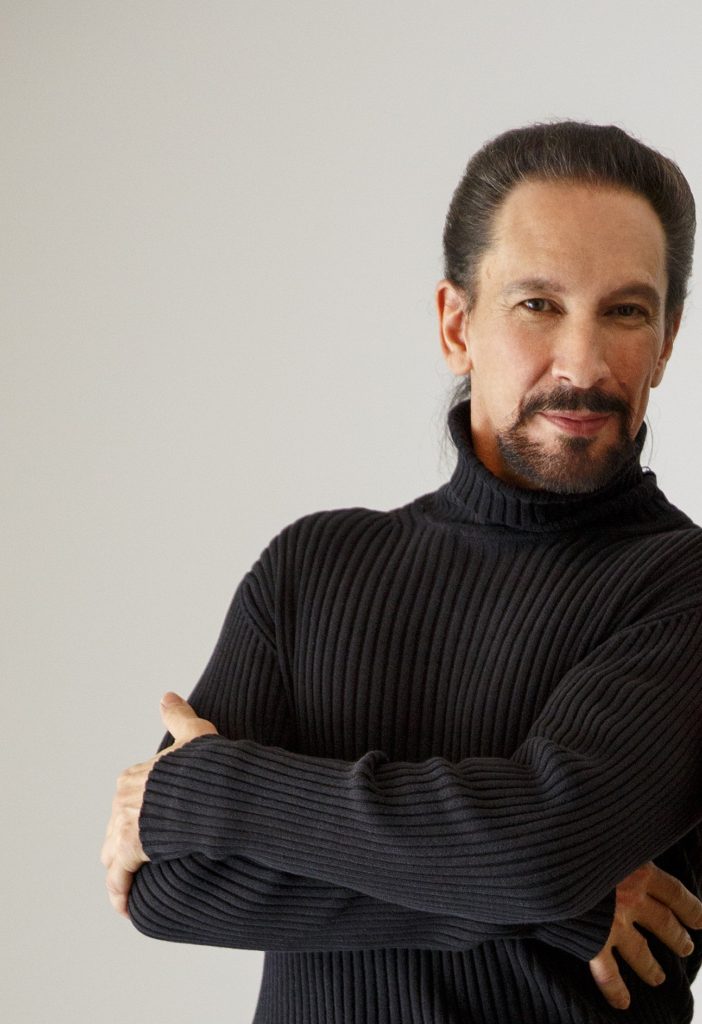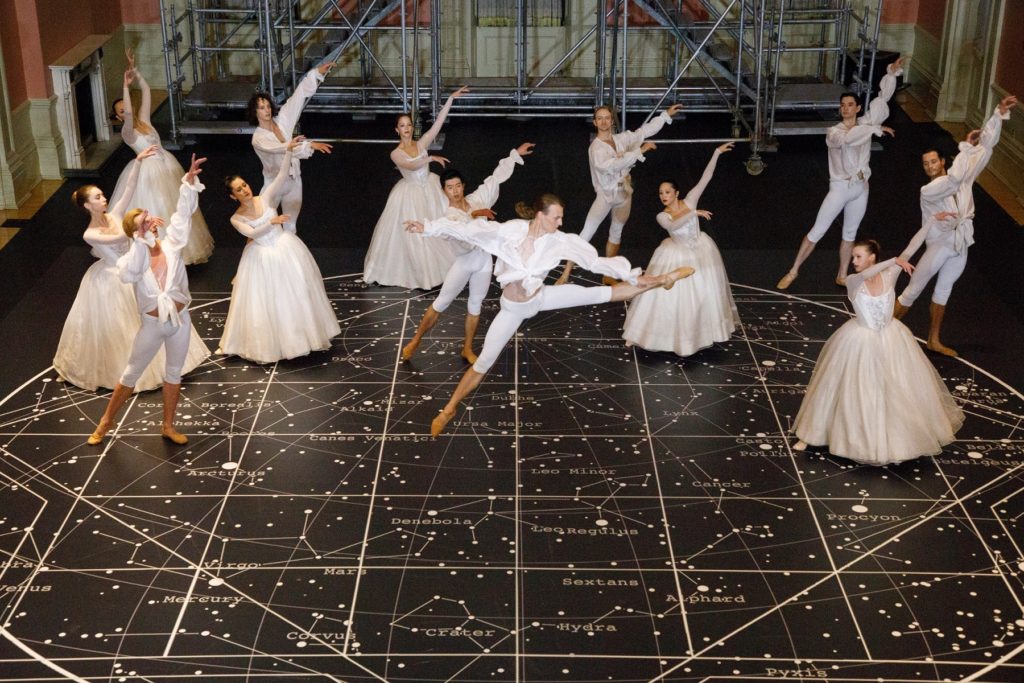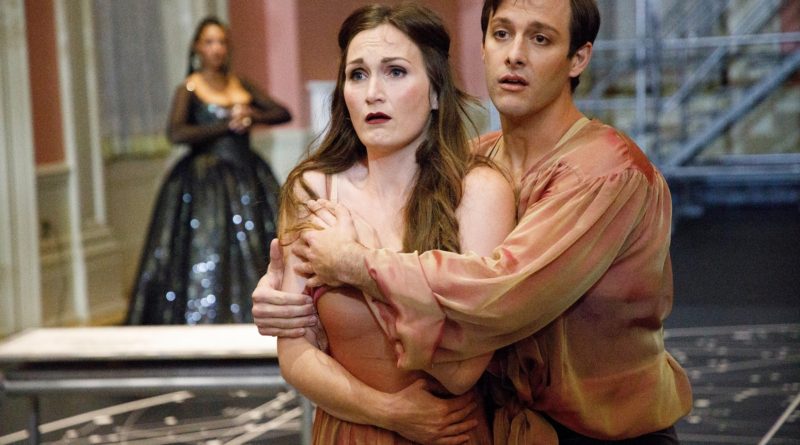Opera Atelier’s “Angel”: Conceived for film and tuned to this tortured time
What does the word “angel” imply to you . . . a divine messenger or guardian who protects?
Or a fallen entity who despairs?

As epitomized by John Milton’s Paradise Lost, angels are creatures of appealing polarity. More than 350 years after its publication, the epic poem about the angel Lucifer’s fall from grace continues to fire imaginations and inspire new interpretations across diverse art forms.
So in this pandemic time when most of us are teetering somewhere between misery and hope, the binary nature of the “angel” – with its attendant themes of isolation, loss of innocence and redemption – feels timely. So it’s little surprise that Opera Atelier’s filmed work, Angel, featuring poems by Milton and 20th Century Austrian writer Rainer Maria Rilke, has resonated since its world premiere on October 28, 2021. So much so, in fact, that that it has been extended until January 3, 2022.
The film features excerpts from Paradise Lost interwoven with Rilke’s poetry, which has been freshly translated by American playwright Grace Andreacchi. Violinist and composer Edwin Huizinga has set the poems to new compositions for baroque instruments, and the production showcases new sets and art direction by Gerard Gauci, and costumes by Michael Gianfrancesco and Michael Legouffe.

“Opera Atelier’s production of Angel was almost entirely conceived exclusively for film,” explains the company’s co-artistic director Marshall Pynkoski, who provided the stage direction for Angel. “We had explored a couple of the excerpts previously in the Royal Chapel, in Chicago (in the Harris Theater for Music and Dance), and in Toronto at the Royal Ontario Museum. But the vast majority of the choreography, staging and music for Angel was created for the current film production.” (The excerpts that had been previously staged were performed not in a proscenium stage but in a space more like a runway, such as the Royal Chapel, Versailles: with people seated on both sides of the performance space, as if at a fashion show.)
The top-notch music and singing in Angel is courtesy of some of Canada’s premiere classical artists. The 70-minute film features soprano Measha Brueggergosman-Lee, tenor Colin Ainsworth, soprano Mireille Asselin, baritone Jesse Blumberg, soprano Meghan Lindsay, and baritone John Tibbetts making his Opera Atelier debut. Bass-baritone Douglas Williams is the tormented Lucifer who grapples with his displacement as a fallen angel, before concluding that it is “better to reign in Hell, than serve in Heaven.” Angel was filmed and edited by Canadian filmmaker Marcel Canzona and includes the full corps of Artists of Atelier Ballet with choreography by co-artistic director Jeannette Lajeunesse Zingg, and an additional solo contemporary choreography created and performed by Tyler Gledhill. The production features Tafelmusik, conducted by Opera Atelier’s Music Director David Fallis, and The Nathaniel Dett Chorale.
A major part of the adaptation for film was allowing Canzona to move fluidly throughout the staging and choreography. In effect, he acted in the place of audience members who see the productions from multiple points of view. “Because we had worked extensively with Marcel in the past, we were confident in his eye and his inherent sense of musicality” Pynkoski notes. “The multiple camera angles of Angel were all carefully vetted by the entire artistic team working in close collaboration with Marcel, as he provided edits for our perusal.” Canzona filmed the song and dance pieces staged in theatrical environments in black and white, heightening the dramatic tension and conjuring that idea of opposites. What the team found particularly exciting was the use of close-ups and the degree of detail they were able to share with the audience – detail that would otherwise have been lost.

Although COVID-19 protocols evolved and tightened, Angel’s creative team considered all production aspects so comprehensively that filming was able to proceed without interruption or adjustment. Angel was rehearsed and filmed following all government-regulated protocols under an ACTRA agreement. The entire cast and crew were carefully monitored and looked after, with masking and COVID-19 testing a major part of the plan. As a result, the creative team had far greater freedom than they would have experienced in a purely staged production. Pynkoski notes that – other than the obvious financial impact of this degree of care – the COVID-19 protocols did not inhibit the choreography and staging in any appreciable way. According to one of Opera Atelier’s singers from Berlin, “Opera Atelier’s ‘recording studio’ in St. Lawrence was the ‘safest place he could imagine being during the pandemic’. As always is the case, the respect and care for the artists was always paramount. The cast of singers, dancers and instrumentalists felt safe and cared for.”
As Christmas and the new year approach – bringing with them another strong gust of COVID-19 – audiences can make the arresting Angel a safe part of their holiday pastime, right from the comfort of home. If polarity beckons in this betwixt and between time, Angel’s cinematic and operatic rendition of Paradise Lost will surely appeal.
Reserve tickets to stream Angel here.
© Arpita Ghosal, SesayArts Magazine, 2021
About The Author
Arpita Ghosal
Arpita Ghosal is a Toronto-based arts writer. She founded Sesaya in 2004 and SesayArts Magazine in 2012.
Visit About Us > Meet the Team to read Arpita’s full bio …




